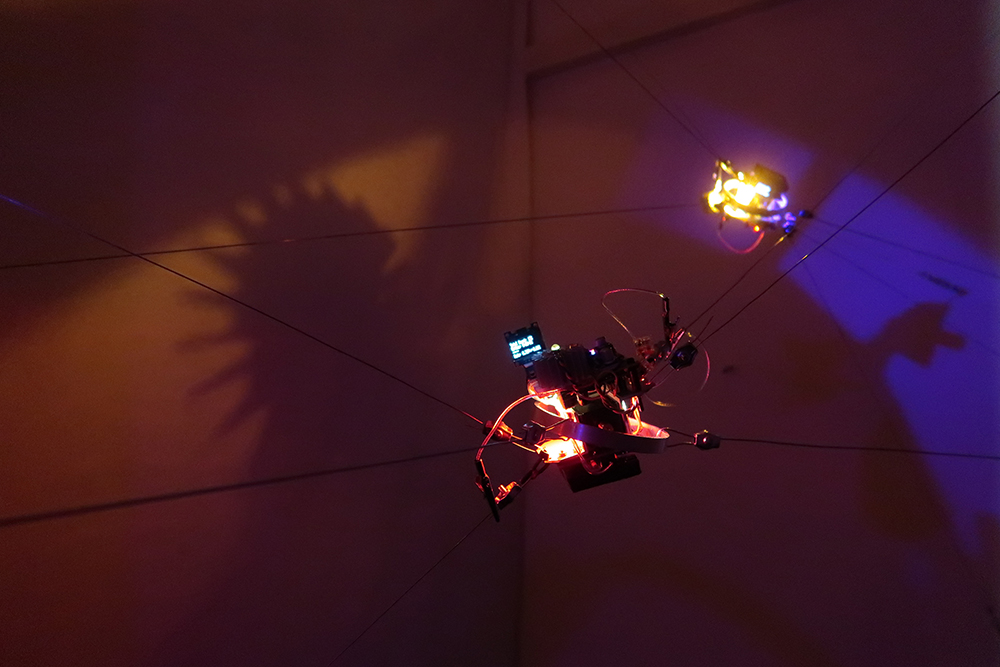Light and sound installation Cosmic Rain by artist Tilno Sepič deals with the analysis and visualization of the phenomenon of cosmic rays, invisible high-energy particles that originate from outer space, mostly outside our solar system.
The installation uses muon detectors that trigger strong flashing LED lights and the sound of electromagnets. In physics, muons are basic particles that are classified as electrons in the lepton family. On Earth, they form in the upper layers of the atmosphere when cosmic rays collide. Their decay time is 2.2 microseconds, yet they can be detected relatively easily on the Earth’s surface (with the right equipment), as the flow of muons at sea level is about one million per minute per square centimeter of horizontal surface. Technologies for such measurements have long been unavailable outside the laboratory and research-institutional context. In 2017, MIT published the Cosmic Watch muon detector plan developed by professors and doctoral students at the MIT and WiPAC (USA) and NCBJ (PL) institutes for upgrading the IceCube neutrino observatory in Antarctica. The Cosmic Watch detector uses a plastic scintillator as a detection medium and a silicon photomultiplier to detect light. When the muon passes through the scintillator, a weak light pulse is generated, which is amplified by the photomultiplier and converted into an electrical signal, which is recognized by the built-in microcontroller. Because they are open source, these detectors can also be adapted and used as triggers for light, sound or kinetic elements.
Artist Tilen Sepič
Circuit making and programming: Luka Frelih, Staš Vrenko, Brane Ždralo
Production Ljudmila Society, laboratory for science and art
Artistic direction and production by Maja Burja
Executive production by Dare Pejić, Anže Zorman
Technical assistance Luka Bernetič, Valter Udovičić
Acknowledgments Jožef Stefan Institute (Prof. Dr. Peter Križan, Dr. Andrej Gorišek), Dadamachines (Johannes Lohbihler), Miro Križman, Luka Bernetič
